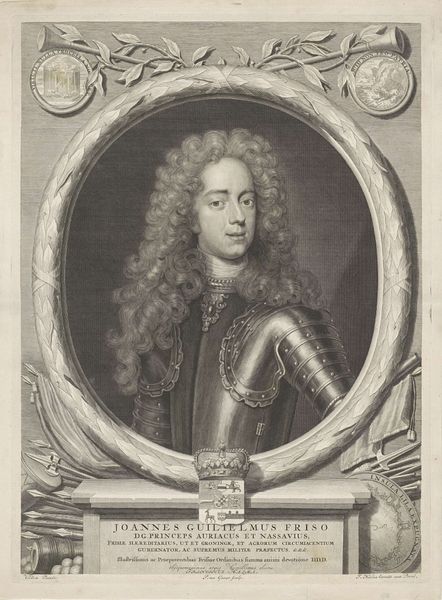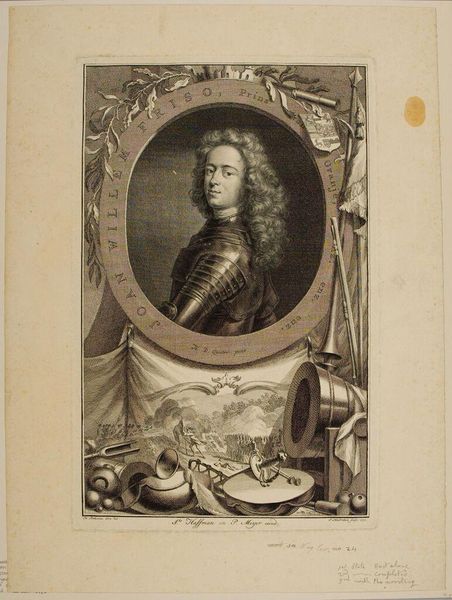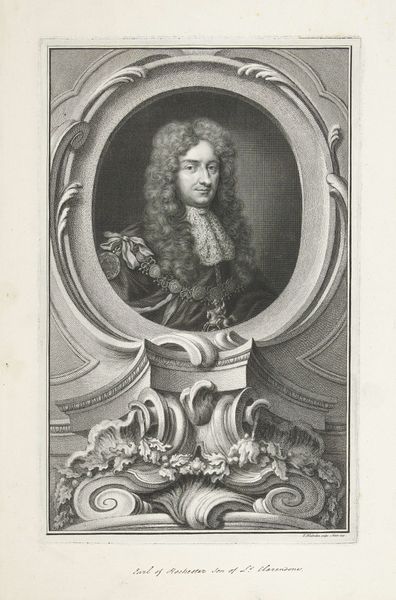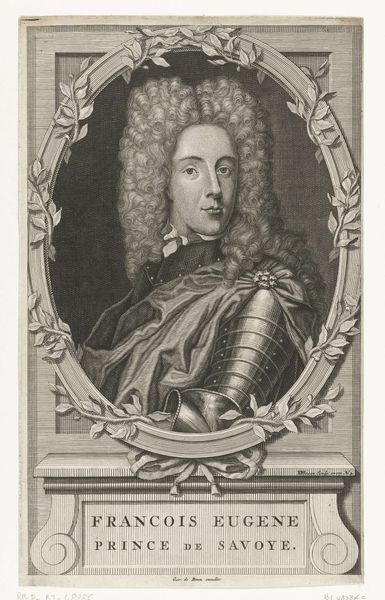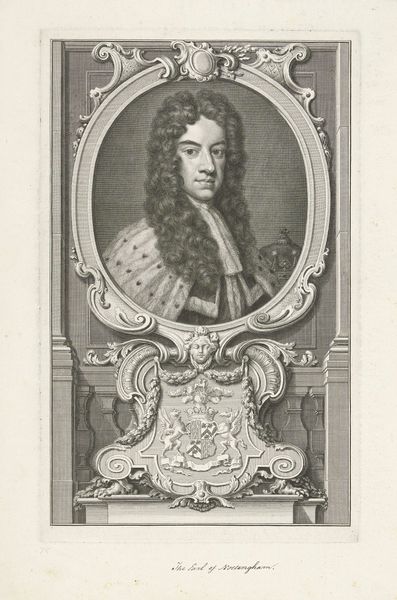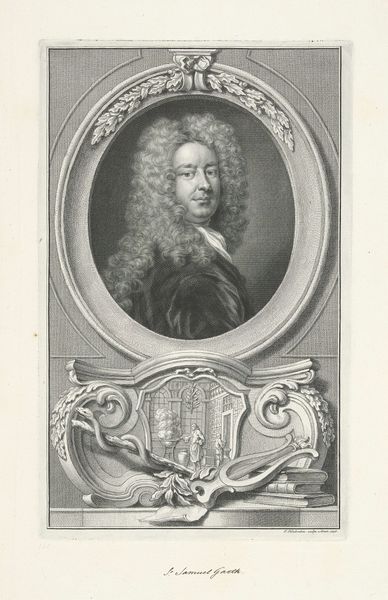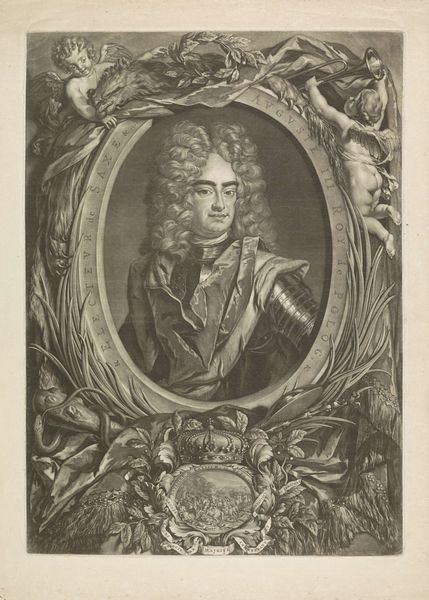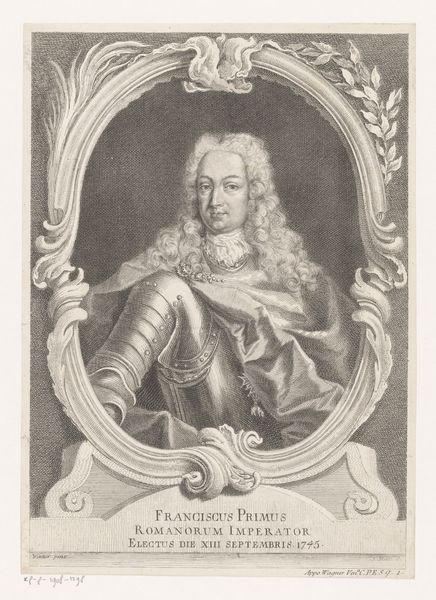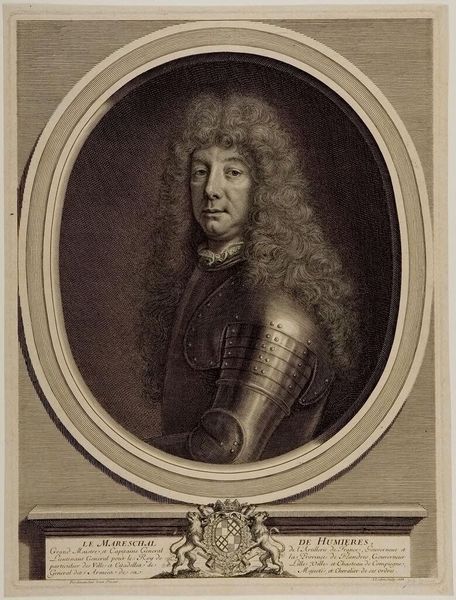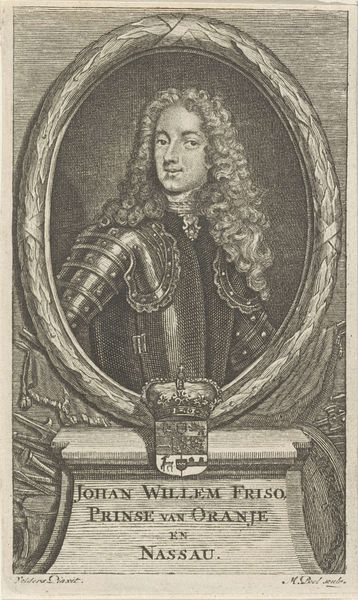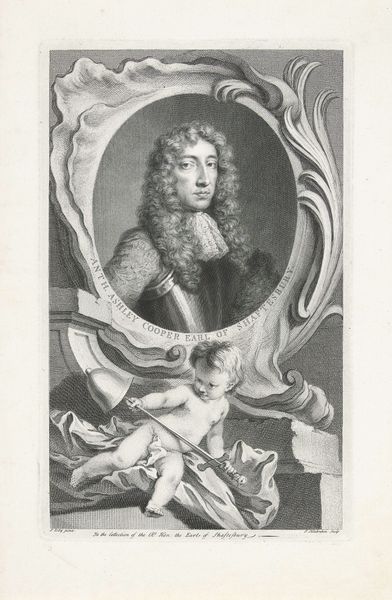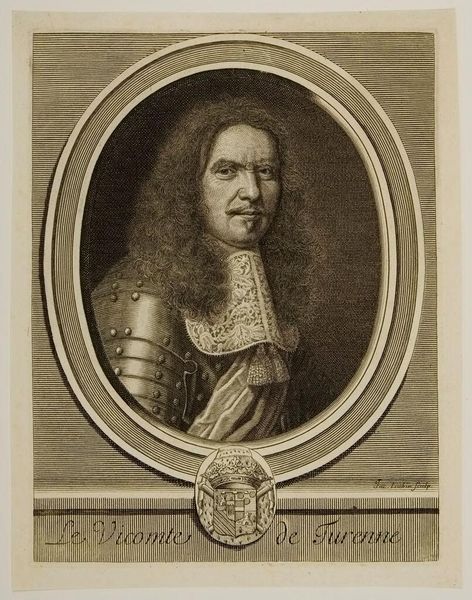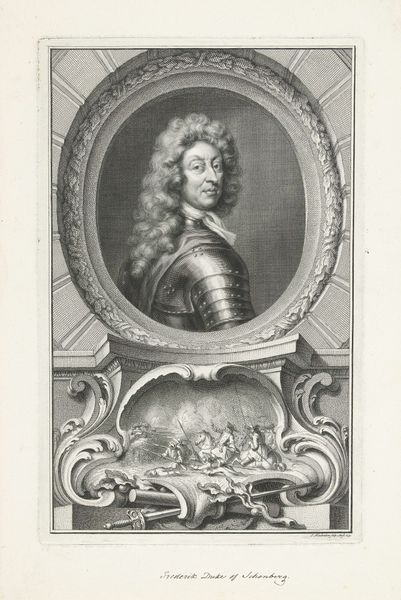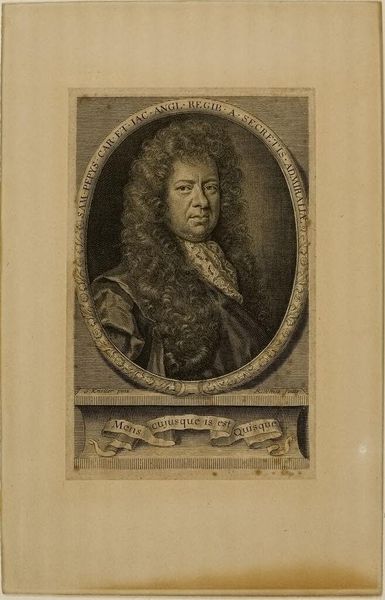
print, engraving
#
portrait
#
baroque
# print
#
history-painting
#
engraving
Dimensions: height 358 mm, width 227 mm
Copyright: Rijks Museum: Open Domain
Jacob Houbraken created this print of Johan Willem Friso, Prince of Orange-Nassau, sometime in the 18th century. The image is made using engraving, a painstaking process that involves incising lines into a metal plate, which is then inked and printed. Look closely, and you can see the characteristic crispness of the lines, and the way that shading is built up through hatching. Consider all the labor that went into the work. The engraver would have needed to be highly skilled, spending hours meticulously cutting the lines into the metal. This was a pre-industrial process, relying entirely on hand-eye coordination. Prints like this played an important role in disseminating images and ideas, acting as a form of mass media before photography. The social context is crucial: this image served to celebrate and commemorate a powerful figure, reinforcing social hierarchies through skillful manipulation of materials and technique. It reminds us that even seemingly simple images can be deeply embedded in complex systems of labor, politics, and consumption.
Comments
No comments
Be the first to comment and join the conversation on the ultimate creative platform.
